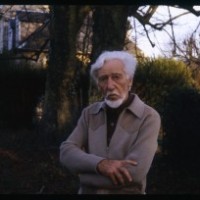Bertrand de Jouvenel: Forgotten Conservative, by Bruce Frohnen
In the disaster for humanity that was the 20th Century, dominated by the murderous dreams of collectivist ideologies and the unrestrained lust for power and the knife, those who loved liberty, be they conservative, libertarian, or “classical liberal,” recognized their common cause: opposition to ever-expanding state power. T.S. Eliot, Christopher Dawson, and Russell Kirk sought to redeem the time through recovery of our understanding of the spiritual bases of culture, and the cultural bases of ordered liberty. They were joined, in the economic sphere, by the likes of Wilhelm Roepke, but also by more secularist, market-centric thinkers like F.A. Hayek, who warned of the false appeal and disastrous consequences of following the Road to Serfdom. Yet, this sometimes uneasy partnership of defenders of cultural renewal and economic liberty included figures who sought to bridge the gap between cultural and economic thought. Such a one was Bertrand de Jouvenel, a conservative political thinker of great importance, whose writings from the middle to the second half of the 20th century deserve a wider audience than they receive.
In important works of political thought, including Sovereignty, On Power, and The Pure Theory of Politics, and also in works and essays dealing with economics and questions of how best to approach problems of public policy, Jouvenel made clear the tendency of the modern state to swallow the rest of society, and the individual with it. Ironically, Jouvenel observed, what made the state so dangerous in modern times was precisely what to most people gave to it its legitimacy: democracy. To many, this recognition of the dark side of democracy rendered Jouvenel’s thought suspect, at best. But his point was not that rule by consent is intrinsically wrong or unjust. Rather, it was that we should recognize the proper limits even of the people to act according to their will, and that such recognition is all the more important in democratic times. From recognition of the importance of the consent of the governed, modern democracy moved to the assumption that governments are legitimate to the extent that they serve the unmediated will of the majority led. Relatively early on, this overemphasis on the normative status of The People (too often little more than an abstraction) led to the common assumption that whatever a democratically elected government did was, by definition, right and just. One need only consider the French Revolutionary Reign of Terror and its claim to act for the people to see the wisdom of Jouvenel’s warning.
In a collection of lectures published as The Ethics of Redistribution, Jouvenel showed how false belief in the power of the majority to achieve a just, fair, and (especially) equal society could succeed only in feeding the Minotaur—that monstrous combination of man and beast that the modern state had become. Thinking, wrongly, that the rich had kept for themselves sufficient wealth to satisfy the needs of all, the people for generations have voted for governmental policies aimed at “redistributing” that wealth so as to meet the needs of the poor. Unfortunately, Jouvenel points out, even if one were able to confiscate all the rich had in their possession, the sum would not come close to meeting the needs of even the poorest. Thus, Jouvenel argued, the wealth “transfer” had not been, and could not be, from the rich to the poor, but rather from most of society to the state. Various programs aimed, in theory, at enriching the lives of the poor would be funded from a general tax, taking money from most people so that the government might spend it on those it deemed worthy or in need. From attempting to provide subsistence to the hungry and the cold, the state quickly moved on to funding various ideological projects, including wasteful forms of subsidized insurance and educational programs and artistic endeavors of highly questionable value, as it built an expensive administrative apparatus to determine how much to give to whom. In this manner the state became increasingly powerful and independent of any check or oversight, even as it maintained the guise and the rhetoric of a mere servant of the people.
Read the complete article in The Imaginative Conservative
